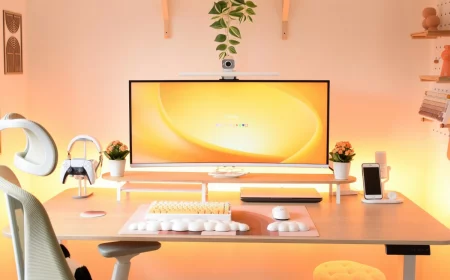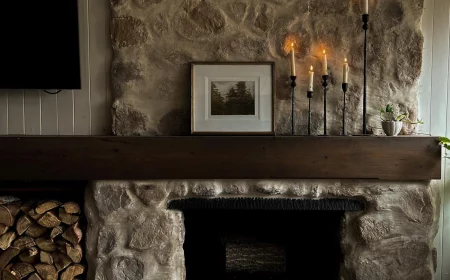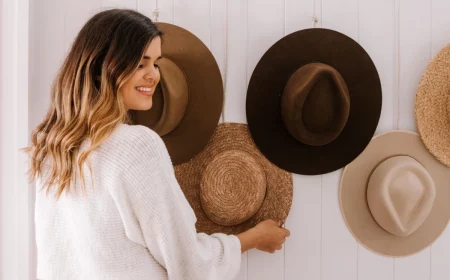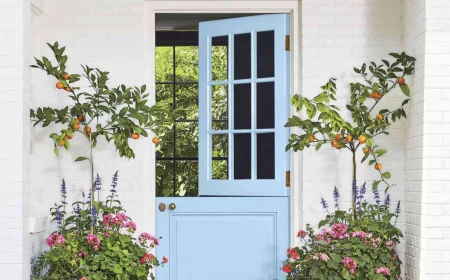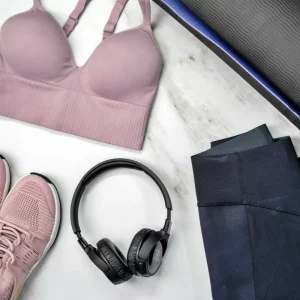Feng Shui Gardening: What Plants to Put in Each Room for Luck
Welcome to the ancient world of Feng Shui, a fascinating Chinese practice dating thousands of years ago! Feng Shui teaching explore the importance of object placement for attracting the right kind of energy. Qi energy is called “creative energy flows” in the eastern teachings of Feng Shui. Plants are strong magnets for this energy. In this article, energy experts show us exactly which plants should be kept in which room at home. Houseplants are involved in attracting things like luck, money and love, but they need to be positioned correctly so that their effect on a person is as positive as possible. That is where Feng Shui comes into play, with the best tips on what plants to put in each room for luck and positive energy. That way, your plants would have maximum benefits and the effects will be the most positive.
Explore what plants to put in each room of your home for maximum luck and good energy
In this article
What is Qi Energy?
This is the energy that brings us luck and makes us happier. It is generated by the universe, therefore it is everywhere. However, it is in a chaotic state, which is characteristic of everything in our world. The task of talisman plants is to capture and attract this energy, or to open a channel through which the Qi energy can enter the home. Since ancient times, oriental sages have advised all people to “green” their homes because plants are a symbol of life. However, you should not do it mindlessly. Each individual room has its own principles and rules that must be followed without question. Here is what plants are good to put in each room to attract the good luck and fortune of Qi energy into your home:
Taking good care of your houseplants is a must in Feng Shui
What Plants to Put in Each Room to Attract Qi Energy
#Living Room and Hallway
Large plants can and actually should be placed in the living room and in the hallway. They will be particularly suitable in those places where the minimum amount of light enters. Large plants are the easiest way to turn your environment into an indoor jungle.
Large plants are perfect for the living room and the hallway
These are the luckiest plants for the living room and the hallway:
- Azalea
- Frangipani (Plumeria)
- Ficus
- Cactus (without spikes, and placed on the windowsill)
- Bamboo
- Hibiscus (very useful large plant)
- Hatiora (can be hung by the front door)
- English Ivy and Devil’s Ivy (also useful near the door as it protects the house from negative energy)
These are the luckiest plants to place in the hallway and living room, according to Feng Shui
#Bedroom
It is better to place plants in small quantities in the bedroom. This place in the house does not tolerate outside interference, so the plants should be as unintrusive as possible. They should be very few and as far away from the bed as possible. In this room the plants should be very small, as large specimens have too powerful an energy, which has a bad effect on a person’s sleep. Also, plants with spikes should not be placed in the bedroom as they can affect your quality of your sleep. Moreover, whimsical plants should also be avoided in the bedroom. However, flowers with red, pink, or yellow color have a good effect on the chakra.
Don’t place a lot of plants in the bedroom, especially not large plants
These are the best plants for the bedroom, according to the teachings of Feng Shui:
- Primrose
- Lavender (a great plant for women looking to attract more love)
- Jasmine
- Sanseviera (or Indian Sword, one of the best plants that purify air)
- Begonia
Be smart when choosing and placing plants in the bedroom
#Kitchen
If you don’t want to put flowers in the bedroom, then you can’t go without them in the kitchen. In this environment, they create a feeling of coziness and completeness of the interior. The kitchen is the liveliest place in the apartment because it is where people gather most often and spend the most time. If your kitchen is small, then by no means should you overload it with large plants or huge vases with bulky flowers.
Here are the best plants for a small kitchen, according to Feng Shui:
- Passionflower
- Pansies
- Tiger-jaws
These are the luckiest plants for a small kitchen, according to the teachings of Feng Shui
In a large kitchen you can put a lot more plants, as in such a room you need to generate more positive energy and attract more positive Qi flows from the outside world. Here are some of the most suitable large plants for the kitchen, according to Feng Shui:
- Ficus Benjamin
- Chinese Rose
- Dracaena
- Dumb Cane
- Mandarin Tree
- Lemon Tree
- Orange Tree
Take a look at our guide for growing a lemon tree from seed, as well as how to grow an orange tree from seed!
According to the teachings of Feng Shui, large plants are perfect for a large kitchen
On the kitchen windowsill, you can arrange the following plants that thrive in natural light:
- Orchid
- Chinese Money Plant
- Geranium
Knowing where to place certain plants will maximize their positive attributes
#Children’s Room & Nursery
The Feng Shui tips that we mentioned for the bedroom work for the nursery and the children’s room, as well. Except that sometimes it is helpful to have large plants in the nursery. For example, this will be useful in cases where the child has a more lazy and inactive energy that you want to help boost.
Large plants can help stimulate a child’s energy and boost their creativity
According to Feng Shui, the best plants for the nursery and for the kid’s room are the following:
- Calla Lily
- Bamboo
- Lemon tree
- Kalanchoe (also known as Widow’s-thrill)
Also, make sure to place air-purifying plants in the kid’s bedroom
#Home Office
Many people have a workspace in their home that is strictly dedicated to work and nothing else. Especially, after the pandemic, a lot of people switched to a home office. Generally, this is a great room for plants that stimulate mental power and creativity.
Your home office is the perfect place for a few lucky plants
These are the luckiest plants for the home office, according to Feng Shui:
- Crassula or Pigmyweeds (attracts money and good luck)
- Ficus (a magnet for wisdom)
- Aglaonema (improves intuition)
- Tangerine tree (boosts focus)
- Lemon tree (increases productivity and stamina)
Placing the right plants in the home office can stimulate your brain and help your work life
In Conclusion
As you can see, there are a lot of different plants that you can place in your home environment. Not only are plants a great way to bring a little piece of nature into your home, but also a great tool for attracting positive energy and luck. By utilizing the teachings of the ancient Chinese practice of Feng Shui, you can place the right plants in each room for maximum luck and good energy. The right plants can easily help you manifest the things you desire and create a harmonious environment for your whole family. So go ahead because now you know what plants to put in each room for positivity and luck:
Now you know what plants to put in each room for luck, according to Feng Shui
More Articles You Might Like
- Feng Shui Colors: How to Use Green to Attract Fresh Energy
- Luckiest Feng Shui Colors for 2023 (fashion, interior design, makeup)
- Houseplants That Will Protect Your Home From Negative Energy
- Lucky Houseplants For 2023 That Attract Positive Vibes & Prosperity
- Bedroom Plant Aesthetic: 9 Plants to Help you Sleep Better















